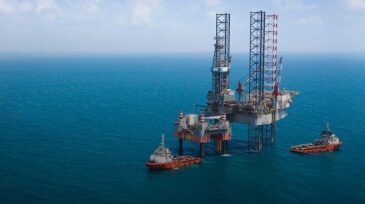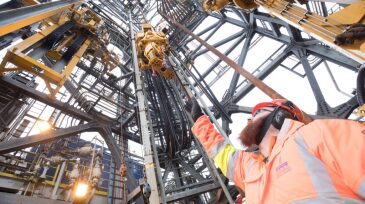AI/machine learning
In the past year, publications on CO2, natural gas, and hydrogen storage have increasingly focused on the design, evaluation, and optimization of storage plans. These efforts encompass a broad spectrum of challenges and innovations, including the expansion of storage reservoirs from depleted gas fields and saline aquifers to stratified carbonate formations and heavy-o…
This paper introduces an agentic artificial-intelligence framework designed for offshore production surveillance and intervention.
Reaching further than dashboards and data lakes, the agentic oil field envisions artificial intelligence systems that reason, act, and optimize.
-
Baker Hughes, a GE company, (BHGE) and C3.ai announced a joint venture agreement that brings together BHGE’s fullstream oil and gas expertise with C3.ai’s unique artificial-intelligence software suite to deliver digital transformation technologies and drive productivity for the oil and gas industry.
-
Researchers at the University of Massachusetts, Amherst, performed a life-cycle assessment for training several common large AI models. They found that the process can emit more than 626,000 lbm of carbon dioxide equivalent—nearly five times the lifetime emissions of the average American car.
-
Random Forest and Neural Network are the two widely used machine-learning algorithms. What is the difference between the two approaches? When should one use Neural Network or Random Forest?
-
Malaysia’s Petronas, Shell Malaysia, and Thailand’s PTTEP are now in the midst of full-scale digital adoption. The companies are beginning to see results, but none is counting on a “big bang” in development of the technology soon.
-
The algorithms for running AI applications have been so big that they’ve required powerful machines in the cloud and data centers, making many applications less useful on smartphones and other edge devices. Now, that concern is quickly melting away, thanks to a series of recent breakthroughs.
-
This paper describes a path to general artificial intelligence (AI) (i.e., AI that is as smart or smarter than humans) based on the trend in machine learning that hand-designed solutions eventually are replaced by more-effective, learned solutions.
-
Arundo Analytics has built an integrated industrial Internet of things platform that allows data scientists to productize data-science solutions and accelerate feedback/improvement iterations between end-users and data scientists effectively.
-
Microsoft announced three new services that aim to simplify the process of machine learning—an interface for a tool that automates the process of creating models; a new no-code visual interface for building, training, and deploying models; and hosted Jupyter-style notebooks for advanced users.
-
Analytics, sensors, and robots are changing the way one of the world’s largest oil and gas companies does business. Underpinning all the new technology though is a shift in how BP thinks, and what it means to be a supermajor in the 21st century.
-
Maybe we don’t need to look inside the black box after all. Maybe we just need to watch how machines behave, instead.













